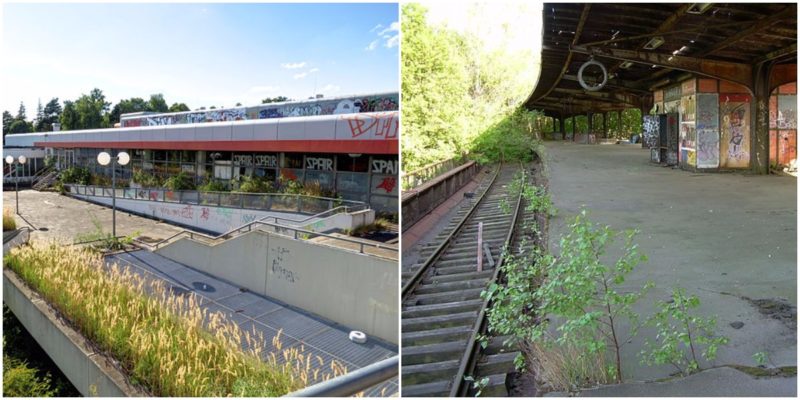The capital of Germany is full of abandoned objects from of all shapes and sizes, from amusement parks and shopping malls all the way to civilian airfields and Cold War spy towers. Here, we provide a glimpse of a few of the most interesting abandoned spaces in and around the city.
In a south suburb of Berlin, there is a residential area known as Cité Foch. It has been there since after the Second World War, built between 1952 and 1976 by and for the French soldiers in Berlin and their families. Since this is quite an old settlement compared to later modern Berlin, it was not built in accordance with German planning law. That became a problem in the early 2000s when the city of Berlin was calculating the parcel divisions and plans for further city development.
Some of the buildings were demolished as people sold their flats and moved elsewhere. As a result of this emigration, many of the Cité Foch facilities and community buildings remained disused, closed and abandoned. The most picturesque of all is the large shopping/cultural/health center on Avenue Charles-de-Gaulle avenue. It has been closed and neglected since 2006.
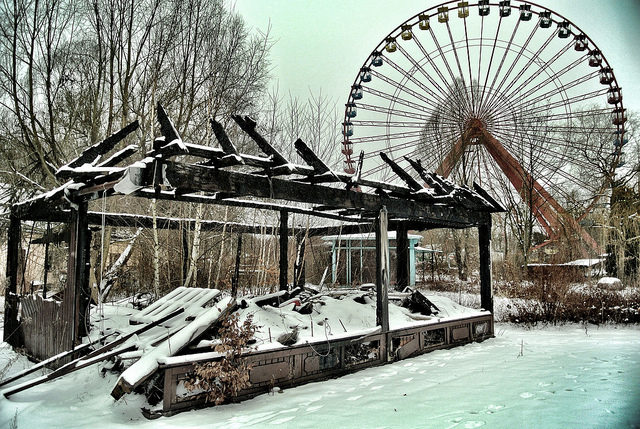
Cutting through Berlin for four and a half kilometers is The Siemensbahn or the S-Bahn Siemens railway line. The line itself is not abandoned. It functions perfectly, and is a daily routine to many Berliners, carrying across Berlin and to or from work.
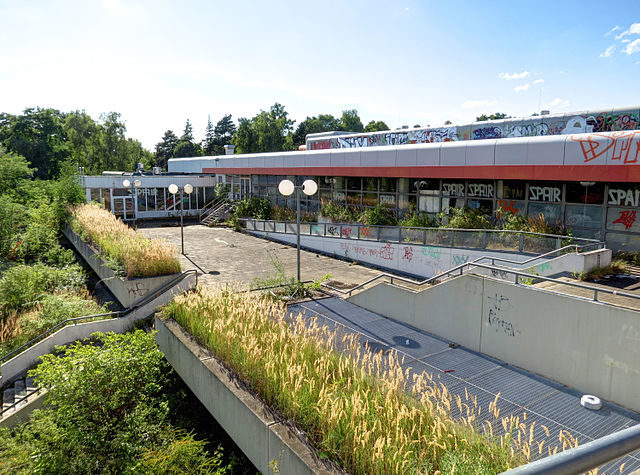
There are a few stations on the line that are not used anymore after declining in popularity. Today they are neglected, overgrown, and quite beautiful. It is not hard to reach them and are a great place for trainspotting.
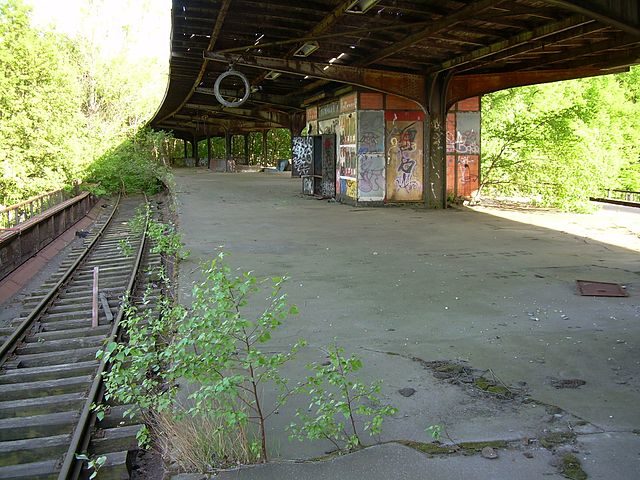
Berlin’s district Mitte is the home of nine eleven-story buildings crafted in the socialist fashion. The tall and wide, white blocks of flats were built between 1968 and 1970 according to the plans of the architects Manfred Hörner, Joachin Härter, and Peter Senf. Once completed, they became home to the State Central Administration for Statistics and the Ministry of State Security. The first floor along with the ground floor were occupied by restaurants and hunting and finishing equipment shops, selling only products from the USSR. The main entrance of the building is decorated with a copper relief by Fritz Kühn. And the biggest wall inside the building was painted with a mural by Ronald Paris entitled In Praise of Communism. Since 2008, the building has been empty and abandoned. The newest plans from May this year are to revive the building in the old spirit of administration and bureaucracy, but with little a bit of twist, as some floors will be home to a new cultural and education center.
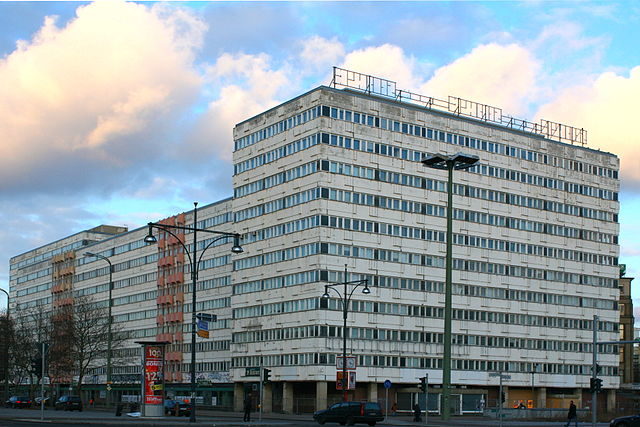
About 42 kilometers south of Berlin lies the former Brandenburg airport. After its swift construction, it was inaugurated on 30th of July in 1936 to serve as a general sports air traffic for the 1936 Olympic Summer Games. Following the games, it was used both as a civilian and military airport.
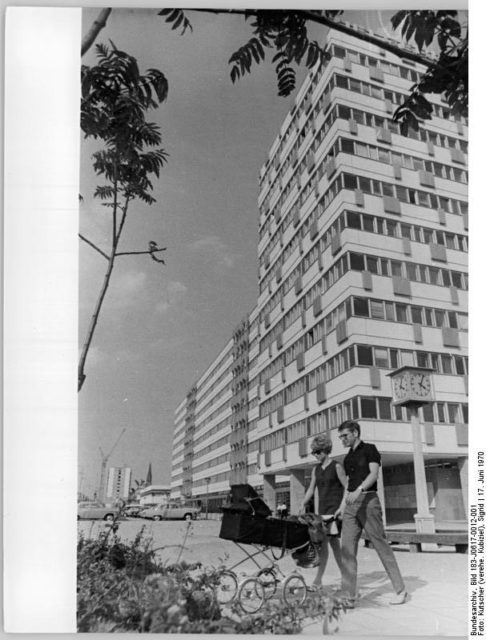
After the airport was occupied by the Red Army during the Second World War, it was used as a sort of graveyard for more than two hundred aircraft and helicopters that were no longer in condition to fly. Flugplatz Rangsdorf fell out of use after the war as it was severely damaged. Today only a small part of it remains.
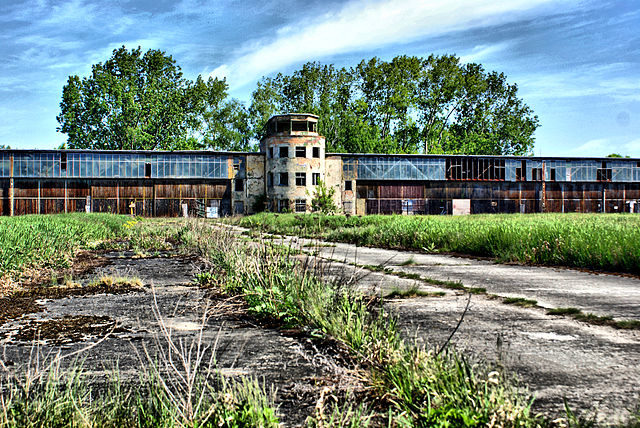
During the Cold War era, sometime in the 1950s, the US discovered the best location on German soil for a monitoring tower. High up in the hills of Western Berlin they constructed the Teufelsberg. It was initially a mobile installation with the task of monitoring the airspace in and out of Berlin. However, over time, it became a more serious installation as five aerial couplings were added to the structure. This facility could perform surveillance tasks deep into the territory of the Warsaw Pact in Eastern Germany.
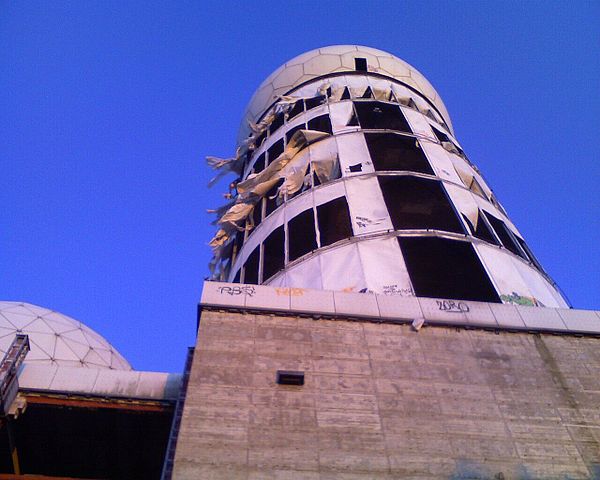
Today, the site is a great place to visit, first for its appearance as a futuristic building but also for the expansive views of Berlin. It has been in many films and often been used as a place for cultural and artistic gatherings.
